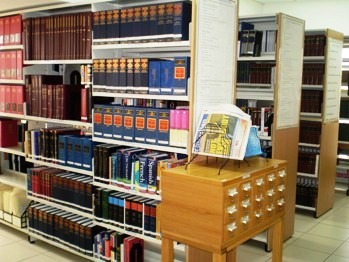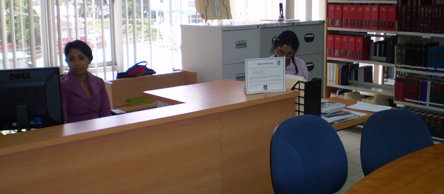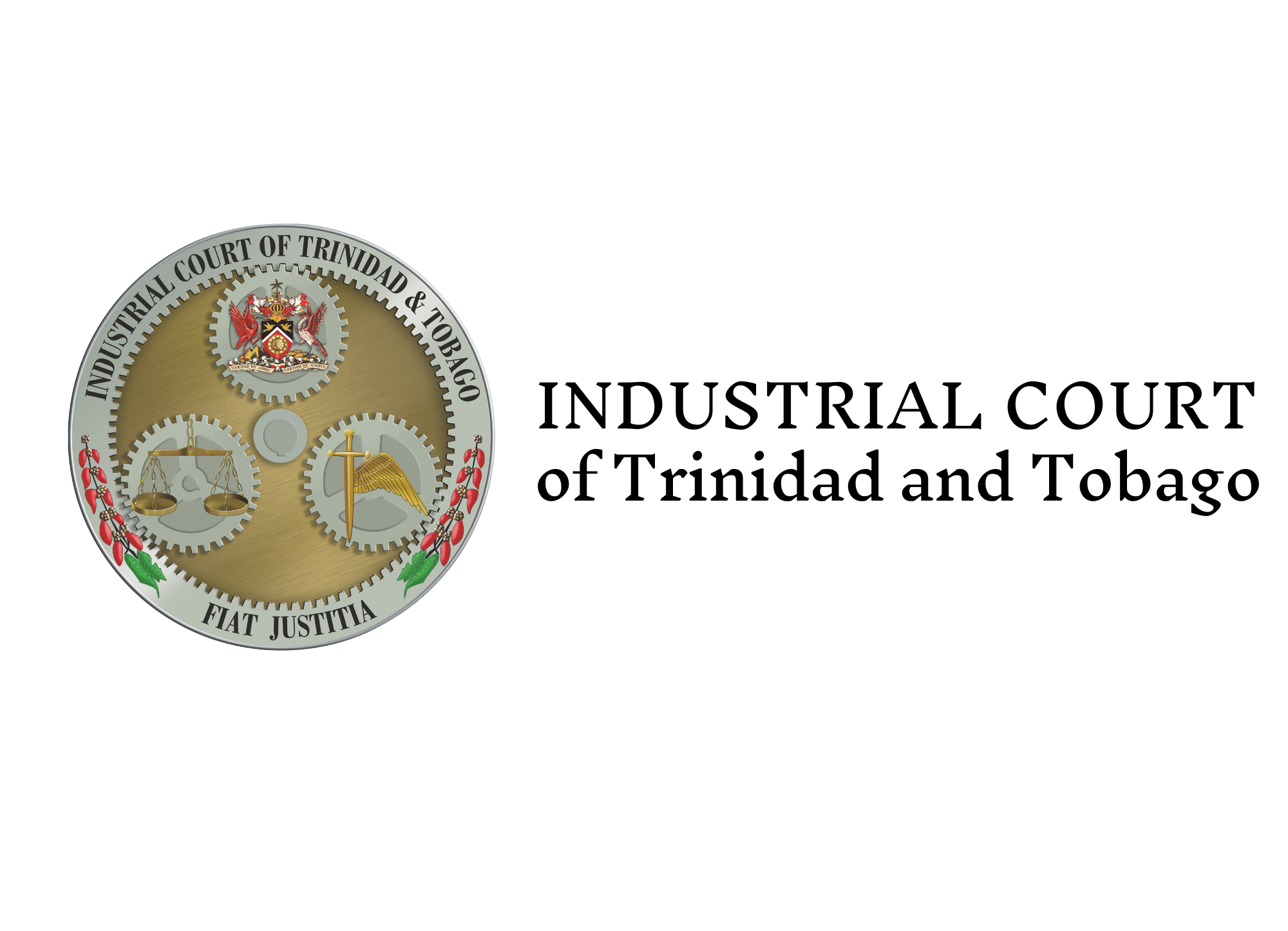What is Conciliation?
Conciliation is the amicable resolution of a dispute. It involves a method of alternative dispute resolution whereby a third party meets with the parties and assists them in finding a way to settle their dispute.
Conciliation Services
Conciliation is carried out by the Members of the Industrial Court in accordance with section 12 of the Industrial Relations Act, Chap. 88:01.
The Conciliation Process
At the request of the parties, matters are referred for conciliation before a Member of the Court. Parties can make such a request:
- On the Case Management Form
- During a Case Management Conference
- During the hearing of the dispute
History of Conciliation
The Conciliation process at the Industrial Court stemmed from the development of the Industrial Relations System in Trinidad and Tobago, which started with the enactment of the Trade Disputes (Arbitration and Inquiry) Ordinance of 1938. This Ordinance laid the foundation for the determination of disputes through collective bargaining, and was the first in formally legislating the use of the conciliation technique as part of the formal structure of the Industrial Relations System. This Ordinance was then repealed and replaced by the Industrial Stabilisation Act of 1965, which established the Industrial Court and included provisions for the Court to settle disputes by conciliation.
The Industrial Stabilisation Act, 1965 was repealed and replaced by the Industrial Relations Act (IRA), 1972 “to make better provision for the stabilisation, improvement and promotion of industrial relations”. The IRA retained the provision to settle disputes by conciliation (see section 12 of the IRA).
Statistics
Court Statistics reveal that, under the Industrial Stabilisation Act 1965, one thousand and fifty-three (1,053) matters were filed for the period of 1965 to 1972. Three hundred and eight (308) of these matters filed were settled through conciliation.
Furthermore, under the Industrial Relations Act 1972, Chap 88:01, seventeen thousand, nine hundred and sixty-three (17,963) matters were filed during the period of 1973 to 2015. Four thousand, one hundred and ninety-eight (4,198) of these matters were settled by conciliation.

The Library has institutional membership in:
- American Association of Law Libraries (AALL)
- Caribbean Association of Law Libraries (CARALL)
SERVICES
 All are welcome and encouraged to use the collection housed in the Library. Only Judges and Staff of the Industrial Court are entitled to borrow circulating materials, everyone else can use the material in-house only. Click here for more information...
All are welcome and encouraged to use the collection housed in the Library. Only Judges and Staff of the Industrial Court are entitled to borrow circulating materials, everyone else can use the material in-house only. Click here for more information...
COLLECTIONS
 The library’s collection consists of both primary and secondary resources - judgments, ILO reports, law reports, monographs, statutes, periodicals, information files, speeches, laws and electronic resources on industrial relations, employment, trade unions, management, economics and other peripheral subjects. Click here for more information...
The library’s collection consists of both primary and secondary resources - judgments, ILO reports, law reports, monographs, statutes, periodicals, information files, speeches, laws and electronic resources on industrial relations, employment, trade unions, management, economics and other peripheral subjects. Click here for more information...
JUDGMENTS
 Judgments handed down by the Industrial Court of Trinidad and Tobago since 1965 also contains related Court of Appeal and High Court Judgments.
Judgments handed down by the Industrial Court of Trinidad and Tobago since 1965 also contains related Court of Appeal and High Court Judgments.
OTHER RESOURCES
 A list of websites, databases and bibliographies to assist you in your research process.
A list of websites, databases and bibliographies to assist you in your research process.
All are welcome and encouraged to use the collection housed in the Library, however, only Judges and Staff of the Industrial Court are entitled to borrow materials; everyone else is limited to in-house only. The following is a list of our services:
- Reference research: Email a Librarian - Call or visit a reference desk.
- Photocopy / Print Requests
- Subscription to our Judgment database which includes full text of judgments
- Inter-library loans (liaise with your Library/Librarian to contact us)
- Document delivery: Submit your query/research via email or a phone call. (Conditions apply)
- Information tours
Please contact us if you require additional information or if you are interested in becoming a subscriber of the Library's database.
Library Policies
SUBSCRIPTION POLICY:
The Library offers a subscription to our Judgment database [MINISIS]. The MINISIS database provides you access to full text and abstracts of Industrial Court and Court of Appeal / High Court related judgments delivered from 1965 to present. You can sign up by completing the appropriate Subscription form and submiting to the Library.
This email address is being protected from spambots. You need JavaScript enabled to view it. or Call us at (1-868) 225-4288 ext. 2274-2276 / 1111/1110 to request a Quotation or Invoice.
Subscription payment/renewal can be made at any branch of the Industrial Court Library on Mondays to Fridays from 8.15 a.m. - 3:30 p.m. except for Court and Public Holidays.
FORMS: Single User/ Multiple User
PHOTOCOPYING POLICY:
The library staff will make photocopies as a service to the public at cost. There is a limit (maximum of 75 pages or 3 judgments per day) to how many copies any one person is allowed on any given day. Anything additional is at the discretion of the Librarian. Orders may not be filled on the same day they are placed and Postage and handling costs are additional. Please note that reproduction of the records in any format is subject to the Copyright Laws of Trinidad and Tobago.
CODE OF CONDUCT
- The Industrial Court Library is strictly a research library, as such members of the public are not allowed to borrow books.
- Library users shall engage in the appropriate activities (reading, researching, copying) associated with the use of a law library. The library is not to be used as a substitute for an office for the practice of law, as a forum for servicing or meeting clients or prospective clients, or any other business activity.
- Library users shall be respectful of library furnishings, equipment and material. Users shall handle all library items with reasonable care. Pencil or pen markings, earmarking of pages, removal of binding, tearing pages, use of repositionable (Post-It) notes, paperclips or mutilation in any manner of library material is not allowed.
- Conversation and noise must be kept at an acceptable level in the library so users may have a peaceful and quiet environment conducive to study and research. Loud, abusive, aggressive, threatening or obscene language and/or behavior will not be tolerated.
- Users shall place their cellular phones on silent or vibrate when they enter the library. All cellular phone use is limited to the area outside of the library.
- Smoking, chewing of gum and the consumption of food and/or beverages is not allowed in the library.

